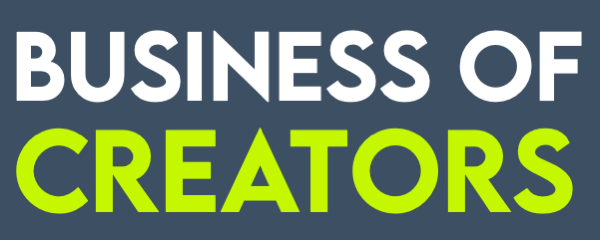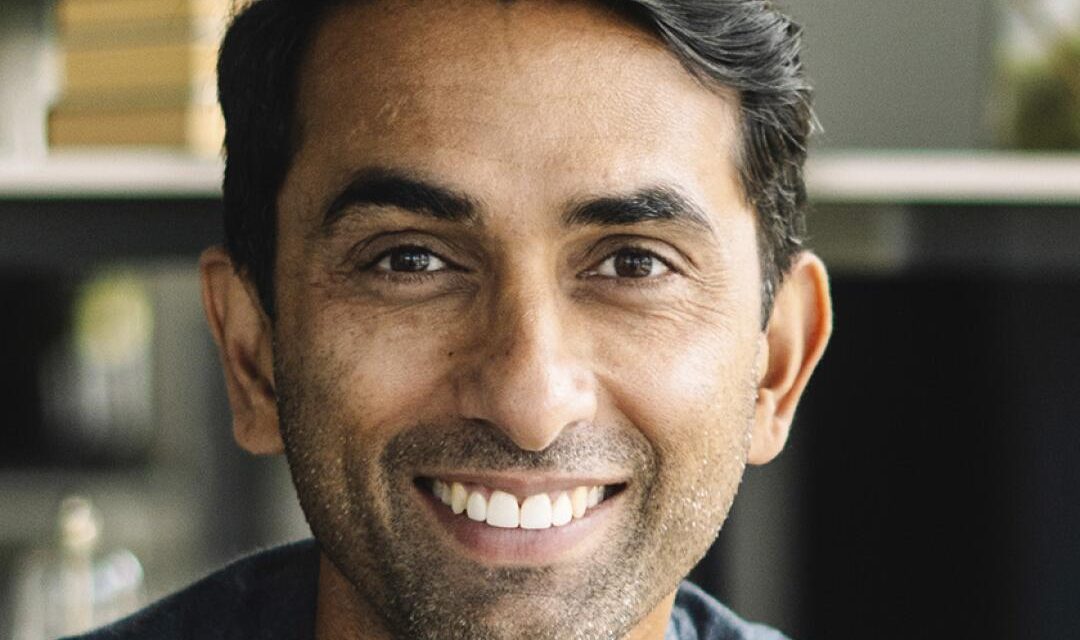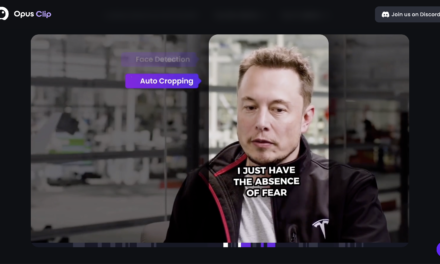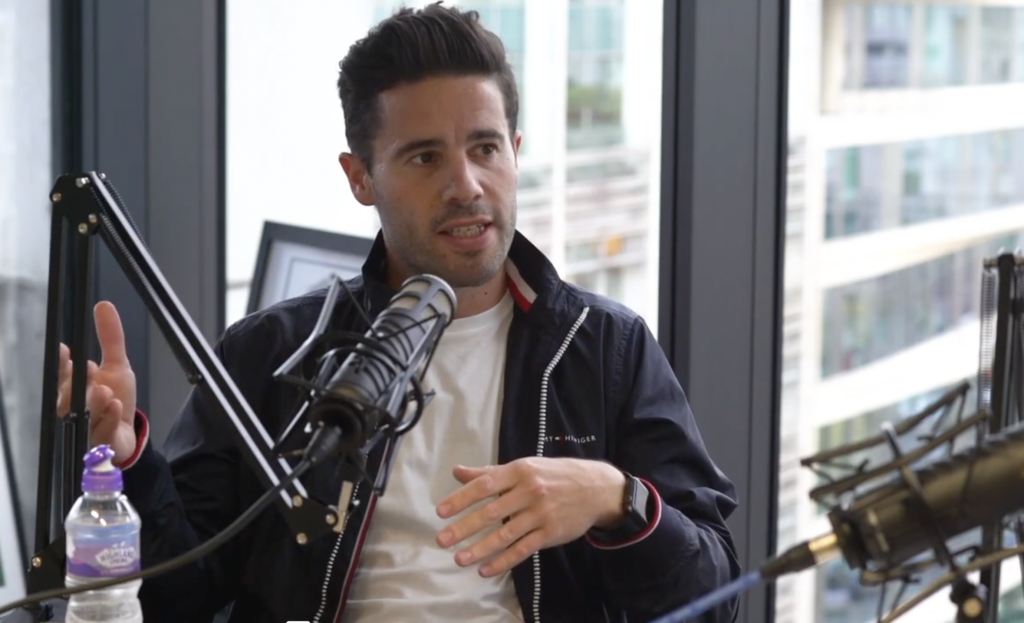Kajabi CEO Ahad Khan on creator commerce, digital products, and the future of the creator economy
The creator economy is maturing — fast. What started as a game of followers, likes, and brand deals is evolving into something far more powerful: creators building full-fledged businesses around their knowledge and expertise.
At the forefront of that shift is Kajabi, the creator commerce platform that’s helped its users earn over $8 billion in revenue through courses, coaching, memberships, and more. In this conversation with The Business of Creators, CEO Ahad Khan unpacks how creators are becoming entrepreneurs, why brand deals are no longer enough, and what’s next for the digital knowledge economy.
“I got a lot of followers, likes, and comments — but it wasn’t translating into income.”
Let’s dive into how creators are monetizing their expertise and what Kajabi is doing to support that transformation.
This conversation is part of the Creator Commerce series Brought to You by .store Domains
Launching a product line? Start with a .store domain — the go-to web address for creators selling online. Top names like MrBeast, Dude Perfect, and Colin & Samir trust .store to build sleek, memorable URLs like YourName.store that drive traffic and sales. Get yours today at go.store/boc3.
From Content to Commerce: Why Creators Are Thinking Like Entrepreneurs
The early days of the creator economy were all about visibility. But as Khan puts it, “dopamine metrics” — likes, followers, engagement — rarely converted into income.
What changed? A mindset shift.
“The most successful creators on Kajabi are the ones who start thinking like business owners.”
Instead of relying solely on social platforms and hoping for sponsorships, these creators are:
- Building funnels from social to email lists
- Launching products like courses and coaching
- Creating direct relationships with their audiences
This isn’t theory — it’s working. From beekeepers in Australia to former doctors teaching productivity, Kajabi users are proving that niche knowledge, when packaged well, can unlock six- and seven-figure businesses.
The Kajabi Playbook: Digital Products, Owned Audiences, and Real Revenue
Kajabi positions itself as more than a tool — it’s an entire ecosystem designed for creators who want to go beyond content creation and build scalable businesses. Everything from landing pages to course platforms, email marketing, and payment systems is built in.
Khan emphasizes the importance of owning the customer relationship.
“If you’re just on social, you’re at the mercy of an algorithm. But if you have someone’s email, you have a direct relationship.”
Some standout success stories:
- Taking Cara Babies: A sleep-training course for new parents that scaled through word of mouth and bite-sized value.
- Honeyflow: A family teaching beekeeping online with a highly engaged niche following.
- Ali Abdaal: From NHS doctor to YouTube star, he launched the Part-Time YouTuber Academy on Kajabi, generating $4–5 million in his first year.
What these creators have in common isn’t fame — it’s clarity. They know their audience, deliver value, and use Kajabi to package that into digital products.
Creator Commerce > Brand Deals: The Future is in Direct Monetization
According to Khan, the future of creator income is shifting away from brand deals. Yes, sponsorships will still exist — but in a world where content is becoming increasingly commoditized (thanks in part to AI), creator-owned brands will matter more than ever.
“When content is easy to produce, brand becomes the differentiator.”
That’s where creator commerce comes in — not just creating content, but selling:
- Paid newsletters
- Online courses
- Private communities
- Coaching programs
And crucially, doing it on your own terms.
Kajabi’s model is designed to enable that independence. Unlike marketplaces or platforms that take a cut, Kajabi creators own their sites, their data, their revenue.
Inside Kajabi’s Rebrand: Optimism, Ownership, and the Creator Journey
Kajabi recently underwent a major rebrand — new colors, new logo, and a new way of telling their story.
Why now?
“We wanted to evangelize creator commerce as a category, just like Shopify did with e-commerce.”
The new visual identity reflects the ups and downs of entrepreneurship — a nod to the real journey their users go through. The goal: make Kajabi not just a tool, but a movement centered on creator empowerment.
And the rebrand is working. With growing momentum and creators proudly calling themselves “Kajabi Heroes,” the platform is becoming a badge of honor for creators serious about business.
Community as a Growth Engine: Kajabi Heroes Live
Being a creator can be isolating. That’s why Kajabi Heroes Live — the platform’s flagship in-person event — is so important.
Originally launched in 2019 as the Impact Summit, the event has grown into a gathering place for thousands of creators to learn, connect, and be inspired.
Some standout sessions from this year:
- Justin Welsh (LinkedIn creator) shared his content creation systems in a “university-level” workshop.
- Colin and Samir (YouTube creators) pulled back the curtain on their video strategy and brand-building journey.
“It’s not just big names — it’s the hallway conversations that spark the most powerful insights.”
The event is as much about community as it is about growth — and that combination is Kajabi’s not-so-secret sauce.
What’s Next: AI, Brand Power, and the $500 Billion Creator Economy
Goldman Sachs predicts the creator economy will double to $500 billion by 2027. But Khan believes the composition of that revenue will change.
Right now, 70% of creator income comes from brand deals. In the future?
“Brand deals will still exist — but we’ll see a much bigger chunk going to products creators own and control.”
As content becomes easier to generate with AI, audiences will gravitate toward creators with credibility, lived experience, and strong brands. That’s where Kajabi’s long-term bet lies: powering the infrastructure of creator-led businesses.
For New Creators: Start Before You’re Ready
Khan’s advice for new or aspiring creators?
“Just get started.”
He encourages creators to test before they build. Instead of perfecting every detail, start by validating an idea — build a landing page, see if people sign up, gauge demand, and iterate.
It’s the MVP mindset — but for content businesses.
“Don’t spend six months building a course no one shows up for. Find the signal first, then go all in.”
At Kajabi, even the product team is focused on this: guiding creators through the first ten steps so they can quickly validate and launch with confidence.
Final Takeaway
The creator economy isn’t just about content anymore — it’s about commerce, ownership, and long-term value.
With Kajabi, creators aren’t just chasing virality — they’re building businesses. As Ahad Khan puts it:
“Build your audience on social, but build your business on Kajabi.”
And that’s where the future is headed.






